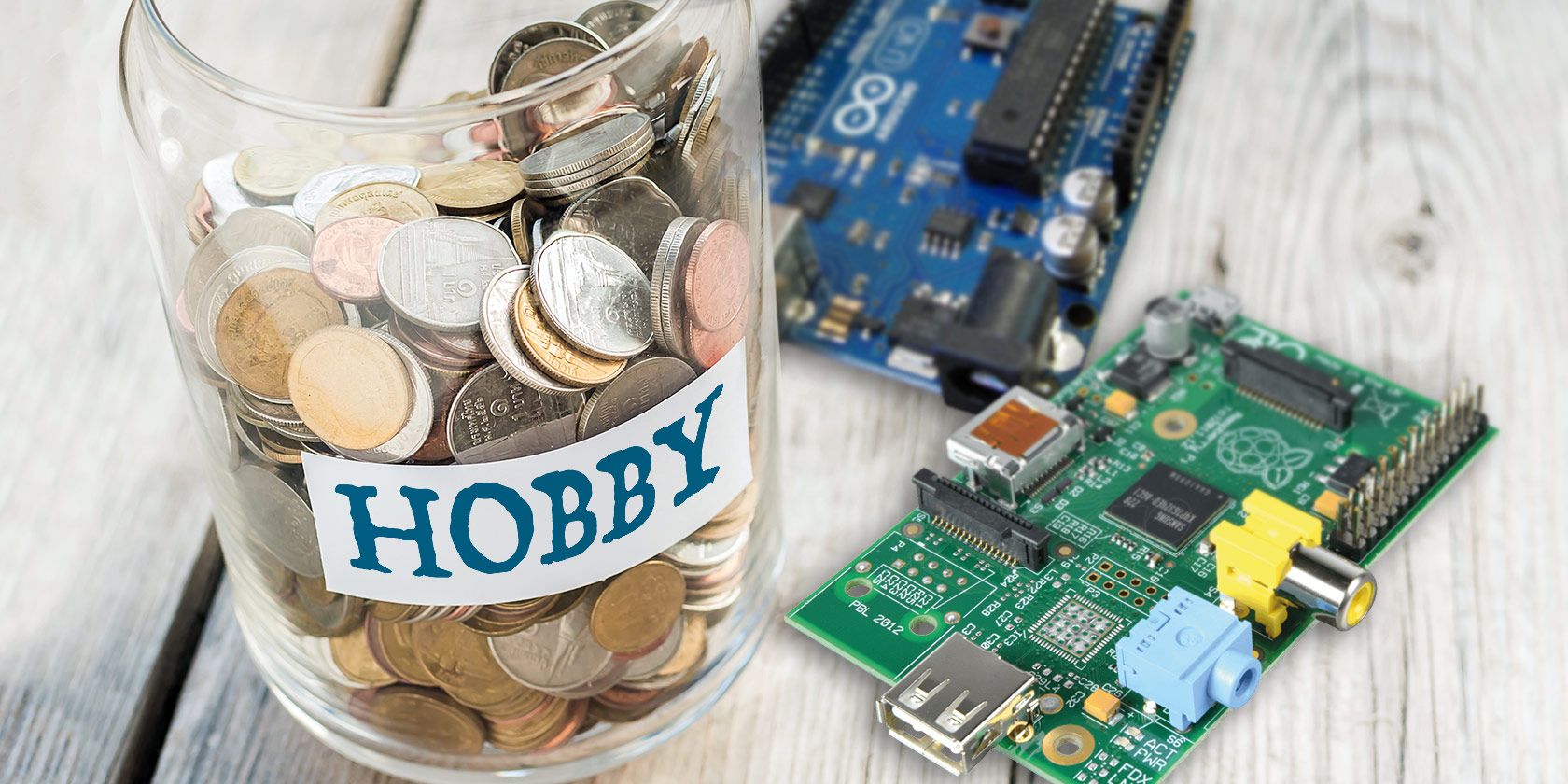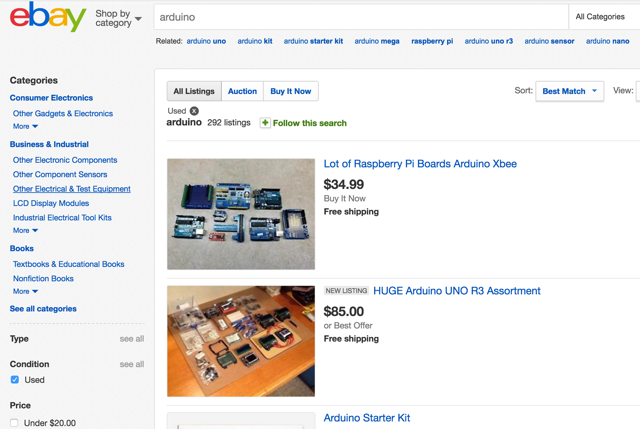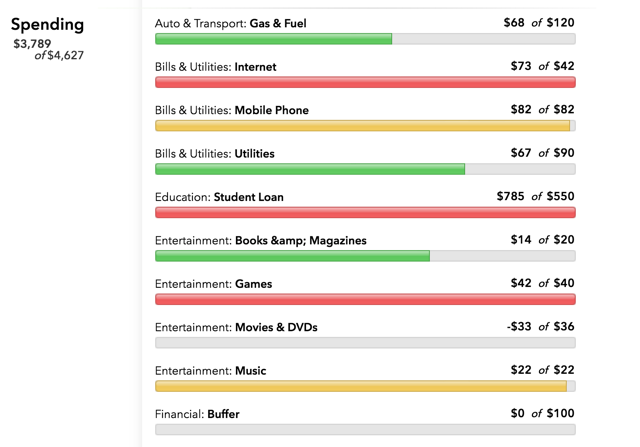Being a technology enthusiast can be expensive. Buying gadgets is a drain on your budget, learning new skills can cost money, maintaining equipment or tools can add up . . . and the same is true of any other hobby (my own hobby, board gaming, can also be very expensive, so I sympathize).
But just because you have an expensive hobby doesn't mean it needs to take over your budget. There are plenty of ways you can make sure you don't spend way too much money on what you like to do -- which will help you lead a more balanced, financially sound life. Here are six things to keep in mind next time you're feeling like your hobby is draining your bank account at an alarming rate.
1. Do the Most with the Least
This is a tough one, and it requires a lot of discipline and self-control. In pretty much any hobby, you can go overboard on buying things; it might be a huge collection of books you probably won't read, video games you won't play, electronics components you won't use, or woodworking tools you don't need. Or maybe you have a tendency to back every Kickstarter you see related to your hobby.
No matter what it is, you can make your hobby less of a drain on your bank account by recognizing where you're spending unnecessary money. And this is the hard part: you have to not make those purchases (or sell off the things you've already bought, but probably shouldn't have). It's not easy, but visualizing your financial goals to keep them in mind can help. Keep your long-term goals at the front of your mind, and making sound financial decisions becomes much easier.
Thinking about value is important, too; if you're considering buying something that you'll use once for a couple hours, it might be a better idea to save that money and put it toward something that you'll use for many hours later.
2. Use Savings Tools
This is an obvious one, but it's so important that it's worth having as the first tip in the list. Don't skip out on potential ways to save money on your hobby because they take effort. Over time, even little savings will add up.
We talk about different ways to help you save money all the time. From sub-reddits that help you save money on Amazon to using Facebook to get deals to telling you how to best take advantage of Prime, the Finance section at MakeUseOf is packed full of useful information on saving money on all the things you love.
Don't forget to check Groupon, LivingSocial, and other similar sites for good deals. Sign up for newsletters to be kept up-to-date on sales from your favorite hobby websites (though know that this will tempt you to spend more money). Use coupon-finding browser extensions to help you get a few bucks off of each purchase.
3. Join a Community
A lot of tech-related hobbies can be done on your own; programming, tinkering, building Arduino or Raspberry Pi projects, and so on. But being part of a hobby community has a lot of great benefits; you get to meet new people, learn more about the things you love to do, see new places, and -- most importantly for this article -- share some of the expenses in doing what you love to do.
For example, if you get together with people to mess around with micro-controllers and build robots, and there's a component you'd like, but don't have, you could borrow one. Or trade someone for something they need. If you know other gamers, you can trade video games when you're done with them, so you don't have to spend $60 on a new one. Programmers can trade resources, like books and subscriptions.
By meeting more people who play board games, I've been able to significantly increase the number of games that I can play without having to spend a huge amount of money buying them for myself. Finding a group for your hobby is easy with sites like Meetup.com, GroupSpaces, topical forums, and local sites.
4. Sell Your Skills
This won't work for everyone, but many hobbies teach you valuable skills that other people need. If you like to take things apart, you might be learning to repair electronics, and there are always people who have a broken device they could use some help with. If you love building and tweaking websites, there are a lot of small businesses out there that could use your help (freelance marketplaces can be a good way to get started on this).
If you know a lot about a specific type of product or good (books, board games, comics, clothes, or really anything else), you might be able to turn your hobby into a side business of selling. Grab great finds at thrift stores -- which you might be shopping at anyway -- and sell them on eBay.
Or you can teach your skill to someone who's looking to learn; put an ad on Craigslist for teaching an electronic skill, tutoring in an area you love to read about, or helping people out with any sorts of problems you can. There are plenty more ways to earn a little money on your hobby; share any good recommendations you have below!
5. Buy Used
This is related to a few of the other items on this list, and it should probably be obvious by now, but it's so crucial in keeping your hobby affordable that it's worth mentioning. In almost every situation, buying used should be your first option -- or at least your first thought. Certain hobbies may be more amenable to this (like my own, books and board games) than others, but just about everyone should go through the various secondhand channels before buying something new.
Whether that means Craigslist, eBay, Amazon, local Facebook groups, specialty websites, or getting in touch with friends, it's probably going to take more effort than buying new, but it will definitely save you money. And buying and selling used items can be a good way to make some extra cash, so you can further supplement your income that way.
When it comes to electronics, you'll need to be especially careful when buying used; make sure to do your homework before making a purchase and you'll be much better off.
6. Budget
This might be the hardest one, and it's certainly the least fun, but it's also one of the most important. If you want to keep your hobby from destroying your budget, you're going to need a budget in the first place. Knowing how much to budget for is difficult, but if you use an app like Mint or YNAB that can look at your past purchases and give you an idea of how much you spend on your hobby each month, it'll get easier.
In my own household, we're dealing with a lot of student debt, so we set a budget for board games that's a bit lower than I'd like. But it helps us keep paying our student loans and saving for retirement, so it's worth it. It's not easy to stay within the budget each month, but visualizing our financial goals and staying motivated to meet those goals has been a big help.
If you don't have a budget at all, you have some work to do. Check out our introduction to Mint, download one of these Excel budget spreadsheets, or fire up a Google Drive budget tool; do something to get started, and you'll be a big step closer to having your financial life in order. And if you stay financially solvent, you'll be able to afford your hobby!
Your Best Tips
A lot of hobbies can get expensive, especially if they involve electronics or gadgets. But even hobbies that seem like they should be cheap can quickly end up costing you a lot of money. By using the strategies above, you can help reduce those costs without giving up the things you love to do. There are lots of good ways to save money on your hobbies, though, and we want to hear the strategies you use!
Do you have any expensive hobbies? How do you defray the cost? Or do you just dedicate a lot of your disposable income to it? Do you feel like it's taking away from other places where you should be spending money? Share your thoughts in the comments below!
Image credit: Money jar with coins by Pachai Leknettip via Shutterstock, Nattapol Sritongcom via Shutterstock, Monkey Business Images.






